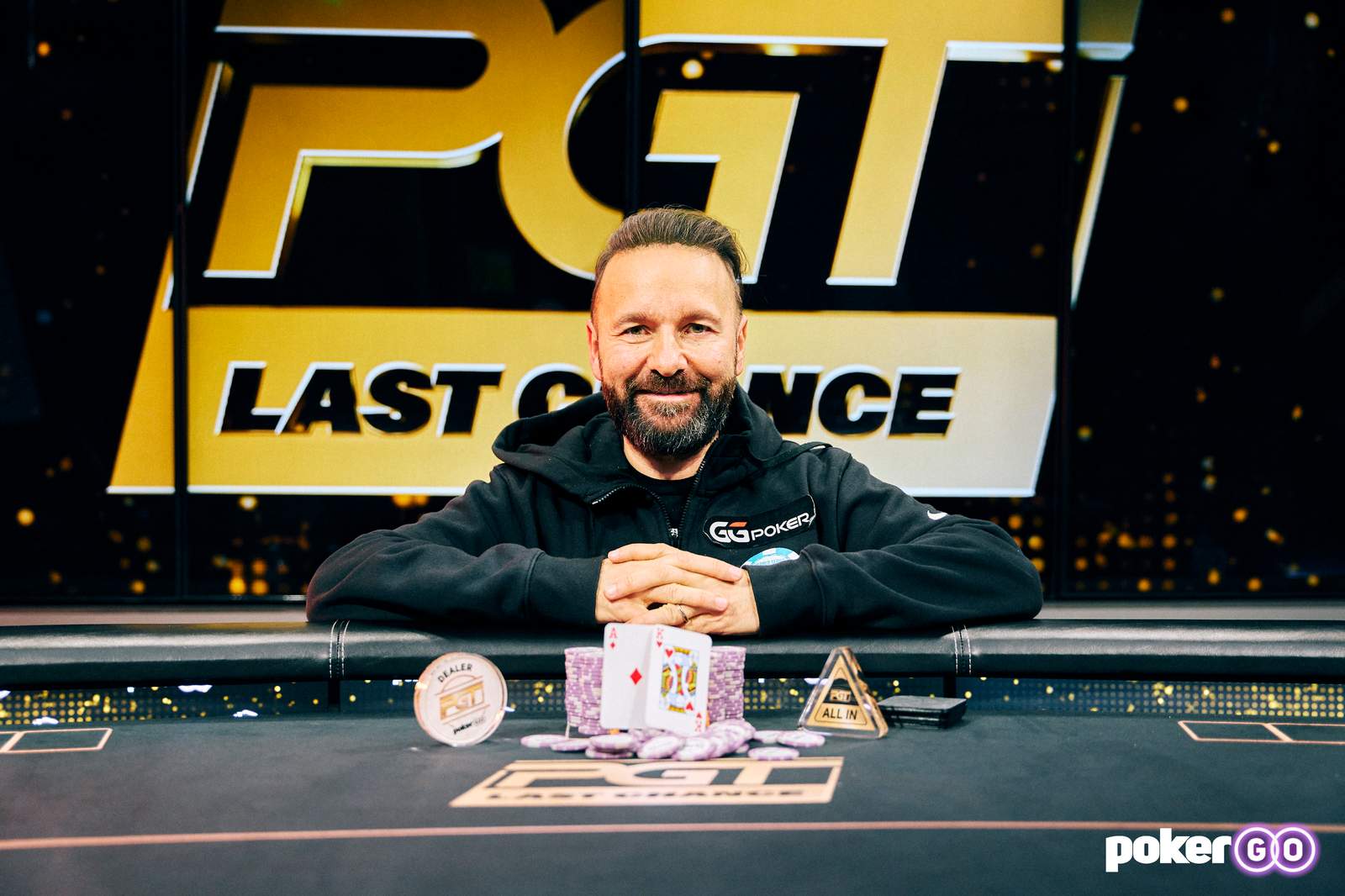Cash game mastery in Texas Hold’em is a critical skill for poker enthusiasts looking to consistently win and increase their bankroll. Unlike tournament play, cash games require a different strategic approach due to their structure of blinds that remain constant and the ability to buy back in after losses. To thrive in these games, players must develop a deep understanding of game dynamics, including hand selection, position, pot odds, player tendencies, and bankroll management. Mastering these elements allows players to make more informed decisions, control the game’s pace, and exploit their opponents’ weaknesses. Adapting to the table’s changing conditions and maintaining emotional control are also vital components of cash game success. By honing these skills, players can become formidable opponents in the competitive arena of Texas Hold’em cash games.
Essential Texas Holdem Cash Game Tips for Consistent Profits
 Cash Game Mastery: Tips for Thriving in Texas Holdem Cash Games
Cash Game Mastery: Tips for Thriving in Texas Holdem Cash Games
Texas Holdem cash games are the bread and butter for many poker enthusiasts, offering a platform for skill expression and consistent profits. Unlike tournaments, cash games allow players to come and go as they please, providing a flexible and potentially lucrative poker experience. However, to truly thrive in this arena, one must adopt a strategic approach that balances aggression with caution, and adaptability with consistency.
First and foremost, a solid understanding of starting hand selection is paramount. In cash games, patience is a virtue that often translates into profit. It’s crucial to resist the temptation to play too many hands, especially in early position. Instead, focus on premium hands and positionally strong holdings, which can leverage your advantage post-flop. This selective aggression will not only build your table image as a strong player but also enable you to navigate post-flop play with a higher likelihood of success.
Moreover, mastering the art of reading the table and your opponents is an invaluable skill in cash games. Pay close attention to your opponents’ betting patterns, their tendencies to fold or call, and their overall table demeanor. This information is a goldmine that can inform your decisions and allow you to exploit weaknesses. For instance, against tight players, you can often steal blinds or take down small pots with well-timed aggression. Conversely, against looser opponents, value betting your strong hands becomes the optimal strategy.
Another key aspect of cash game success is bankroll management. It’s essential to play within your means and to have enough buy-ins to withstand the inevitable swings of the game. A common guideline is to have at least 20-30 buy-ins for the stakes you are playing. This cushion not only protects you from going broke but also gives you the mental comfort to play your best game without the fear of losing a significant portion of your bankroll in one session.
Furthermore, position is a critical factor in Texas Holdem cash games. Acting last provides a significant informational advantage, as you can see how your opponents act before you make your decision. Capitalize on this by playing more hands in late position and tightening up in early position. The power of position cannot be overstated; it allows you to control the size of the pot and more accurately gauge your opponents’ hand strength.
Adaptability is also a hallmark of a successful cash game player. The dynamics of a cash game can change rapidly as players come and go, and as the stacks and blinds increase. Be prepared to adjust your strategy accordingly. If the table becomes more aggressive, tighten up and wait for opportunities to trap overzealous opponents. If the table is passive, take the initiative and become the aggressor, pushing your edge to maximize profits.
Lastly, the mental game is just as important as the physical one. Maintaining focus, discipline, and emotional control are essential components of cash game mastery. Avoid going on tilt – a state of emotional frustration that can lead to poor decision-making. Take breaks when necessary, and always approach the game with a clear mind.
In conclusion, thriving in Texas Holdem cash games requires a blend of patience, strategic aggression, keen observation, sound bankroll management, positional awareness, adaptability, and mental fortitude. By incorporating these tips into your game, you’ll be well on your way to consistent profits and cash game mastery. Remember, poker is a journey of continuous learning and improvement, and with dedication and practice, you can become a formidable presence at the cash game tables.
Advanced Strategies for Texas Holdem Cash Game Mastery

Cash Game Mastery: Tips for Thriving in Texas Holdem Cash Games
Texas Holdem cash games are the bread and butter for many poker enthusiasts, offering a platform for skill expression and consistent profit. However, to truly thrive in these games, one must move beyond the basics and adopt advanced strategies that can provide an edge over the competition. In this exploration of cash game mastery, we’ll delve into the nuances that separate the amateurs from the pros, and how you can elevate your game to new heights.
First and foremost, understanding the dynamics of table selection is crucial. It’s not just about finding a game; it’s about finding the right game. Seek out tables with players who exhibit more weaknesses than you do. This might mean less aggressive players, those who are too passive, or simply those who are there to gamble rather than play serious poker. By placing yourself in the most profitable situations, you’re already a step ahead before the cards are even dealt.
Once you’ve found your ideal table, it’s time to focus on your image. In cash games, the way your opponents perceive you can be just as important as the cards you hold. Cultivate a table image that’s both respectful and formidable. You want to be seen as a tight-aggressive player who enters pots with strong hands and isn’t afraid to push opponents around when the time is right. However, be flexible and willing to adjust this image as the game progresses and as your opponents adapt to your style.
Another key aspect of cash game mastery is bankroll management. Even the most skilled players can face downswings, so it’s essential to play at stakes where your bankroll can withstand the natural variance of the game. A common guideline is to have at least 20-30 buy-ins for the level at which you’re playing. This not only cushions you against losing streaks but also allows you to play your best game without the fear of going broke.
Moreover, mastering the art of hand reading is an invaluable skill in cash games. Pay close attention to your opponents’ betting patterns, their timing, and the size of their bets. Over time, you’ll start to piece together a narrative of what their actions might represent. This insight allows you to make more informed decisions and exploit their tendencies. Remember, poker is a game of incomplete information, and the more clues you can gather, the better equipped you are to make winning choices.
Additionally, don’t underestimate the power of position. Playing in position gives you the advantage of seeing how your opponents act before you make your move. Use this to your advantage by playing more hands when you’re in a late position and tightening up in early position. The information you gain by acting last can be the difference between a marginal call and a confident fold.
Finally, always be learning. The landscape of Texas Holdem is ever-changing, with new strategies and counter-strategies developing all the time. Stay ahead of the curve by reviewing your hand histories, discussing tricky spots with fellow players, and continuously seeking out new sources of information. Whether it’s through books, videos, or coaching, investing in your poker education is an investment in your cash game success.
In conclusion, thriving in Texas Holdem cash games requires a blend of strategic table selection, image management, bankroll discipline, hand reading prowess, positional awareness, and a commitment to ongoing learning. By integrating these advanced strategies into your game, you’ll not only enhance your enjoyment of the game but also increase your potential for profit. Remember, mastery is a journey, not a destination, and every session is an opportunity to refine your skills and edge closer to becoming a formidable force at the cash game tables.
The Psychology of Winning: Texas Holdem Cash Game Tips for Mental Toughness
 Cash Game Mastery: Tips for Thriving in Texas Holdem Cash Games
Cash Game Mastery: Tips for Thriving in Texas Holdem Cash Games
The allure of Texas Holdem cash games lies in their blend of strategy, skill, and the tantalizing prospect of leaving the table with more money than you sat down with. However, to consistently thrive in these games, one must not only master the technical aspects of poker but also the psychological. Mental toughness is the bedrock upon which successful cash game players build their fortunes. It’s the difference between a fleeting victory and sustained success.
First and foremost, it’s crucial to understand that cash games are a marathon, not a sprint. Unlike tournaments, where a single mistake can end your run, cash games allow you to recover from setbacks. This long-haul perspective helps in maintaining a level head. When you accept that downswings are part of the game, you’re less likely to tilt — a term used to describe emotional frustration that often leads to poor decision-making. Instead, you’ll remain focused on making the best possible plays, regardless of short-term outcomes.
Moreover, mental toughness involves discipline, particularly in game selection and bankroll management. It’s tempting to jump into high-stakes games with the hopes of a big score, but the savvy player knows that success comes from finding games with players of lesser skill and managing their money wisely. This means having the discipline to drop down in stakes when necessary and to resist the urge to chase losses. By doing so, you ensure that you’re always playing within your means and against opponents you can outplay.
Another key aspect of mental toughness is the ability to read opponents and adapt your strategy accordingly. This requires keen observation and the willingness to adjust your preconceived notions based on new information. It’s not enough to play a solid, static strategy; you must be fluid and responsive to the dynamics at the table. This adaptability can only come from a mind that is calm, collected, and free from the grip of ego.
Furthermore, successful cash game players understand the importance of detachment from the money at stake. While the goal is to win money, focusing too much on the value of the chips can lead to risk-averse play or, conversely, reckless gambling. Instead, view chips as mere tools for playing the game effectively. This detachment allows you to make decisions based on strategy rather than fear or greed.
Lastly, mental toughness is about resilience. Even the best players will face periods where nothing seems to go right. In these times, it’s essential to maintain a positive attitude and a belief in your abilities. Remember, poker is a game of decisions, and as long as you continue to make good ones, the results will eventually align with your skill level.
In conclusion, thriving in Texas Holdem cash games requires more than just knowing when to hold ’em and when to fold ’em. It demands a level of mental toughness that separates the casual players from the professionals. By maintaining a long-term perspective, exercising discipline, adapting to your opponents, detaching from the money, and demonstrating resilience, you can navigate the psychological complexities of the game. Embrace these mental strategies, and you’ll find yourself not just playing the game, but mastering it.
Bankroll Management: The Key to Long-Term Success in Texas Holdem Cash Games
 Cash Game Mastery: Tips for Thriving in Texas Holdem Cash Games
Cash Game Mastery: Tips for Thriving in Texas Holdem Cash Games
In the world of Texas Holdem, cash games are the ultimate test of a poker player’s skill, patience, and strategic acumen. Unlike tournaments, where the goal is to survive and outlast opponents, cash games require a different mindset and a robust approach to bankroll management. The key to long-term success in Texas Holdem cash games lies not just in the ability to read opponents or make the perfect bluff, but in the disciplined management of one’s funds.
Bankroll management is the cornerstone of any successful poker strategy. It’s the safety net that allows you to weather the inevitable downswings and capitalize on the upswings without risking financial ruin. The first step in effective bankroll management is to separate your poker funds from your personal finances. This separation ensures that the money you use to play is not needed for essential expenses, thus reducing the psychological pressure that can lead to poor decision-making at the table.
Once you’ve established a dedicated poker bankroll, the next step is to determine the appropriate stakes for your games. A common guideline suggests having at least 20 to 30 buy-ins for the level at which you choose to play. This buffer allows you to sit down at the table with confidence, knowing that a single bad session won’t decimate your bankroll. Moreover, it provides the flexibility to move up in stakes when your bankroll grows, or down in stakes if you encounter a rough patch.
Discipline is paramount when it comes to bankroll management. It can be tempting to jump into higher stakes games, especially after a big win, but such impulsive moves often lead to setbacks. Instead, focus on consistent, gradual growth. By steadily increasing your bankroll through disciplined play, you’ll ensure that you’re always competing at a level that matches your skill and financial capacity.
Another crucial aspect of bankroll management is understanding variance. Poker is a game of skill, but luck plays a role in the short term. Even the best players can experience losing streaks due to the natural fluctuations of the game. By acknowledging the role of variance, you can maintain a level head and avoid the emotional pitfalls of chasing losses or playing on tilt. Remember, the goal is to make decisions that have a positive expected value over the long term, regardless of short-term outcomes.
In addition to managing your bankroll, it’s essential to continuously refine your game. Stay abreast of the latest strategies, analyze your play, and learn from both your successes and mistakes. Combining sound bankroll management with a commitment to improvement will give you a significant edge over players who rely solely on their in-the-moment instincts.
Lastly, never underestimate the importance of self-care. A well-rested, focused mind is your greatest asset at the poker table. Ensure you’re taking breaks, getting enough sleep, and maintaining a healthy lifestyle. The sharper your mind, the better your decisions will be, and the more effectively you’ll manage your bankroll.
In conclusion, mastering Texas Holdem cash games is a multifaceted endeavor that extends beyond the felt. By prioritizing bankroll management, you lay the foundation for long-term success. Combine this with discipline, an understanding of variance, continuous learning, and self-care, and you’ll be well on your way to thriving in the competitive arena of cash games. Remember, the journey to cash game mastery is a marathon, not a sprint, and your bankroll is the key to enduring the distance.Conclusion:
To thrive in Texas Holdem cash games, players must master a combination of skills and strategies. Key tips include playing a solid range of hands pre-flop, understanding the importance of position, being able to read opponents and adapt to their playstyles, managing bankroll effectively, and maintaining emotional control. Additionally, continuous learning and analyzing one’s own play through hand reviews and studying advanced strategies are crucial for long-term success. By integrating these elements, players can increase their chances of profitability and become adept at cash game poker.
















+ There are no comments
Add yours